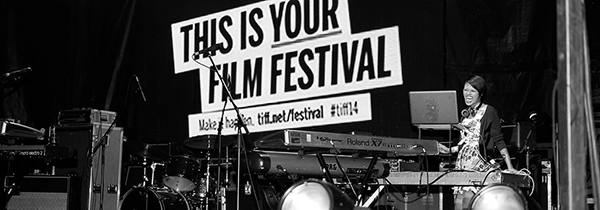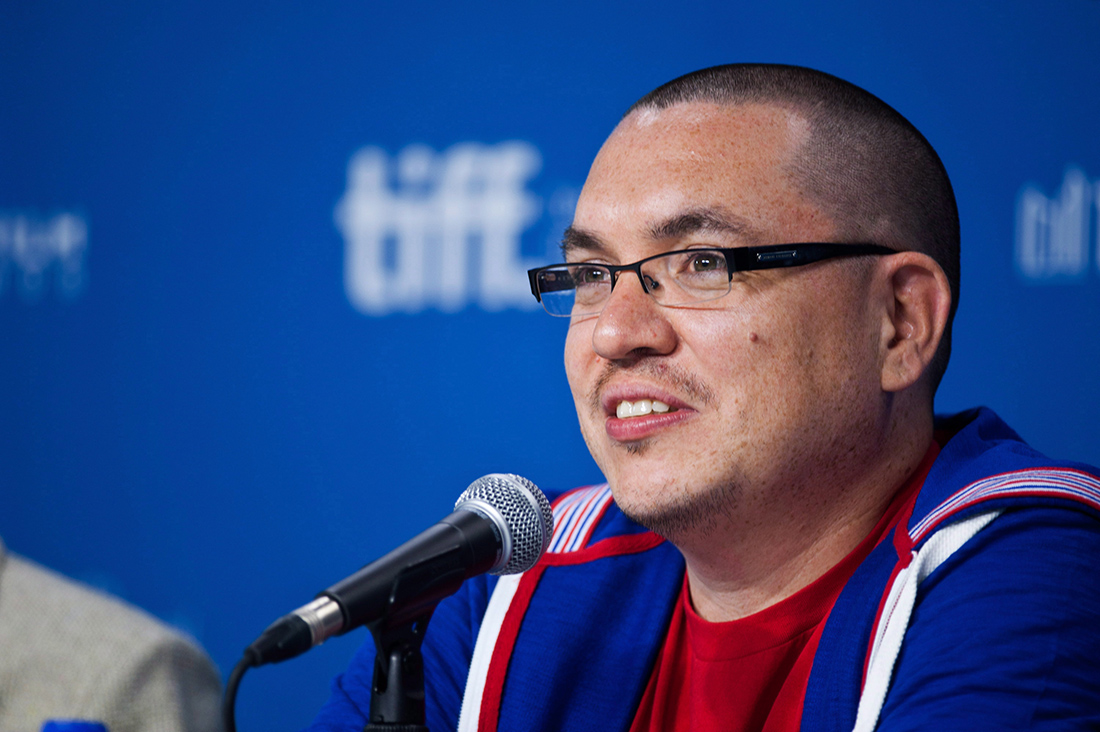Kawennáhere Devery Jacobs, actor, writer, director (born 8 August 1993 in Kahnawà:ke, QC). Devery Jacobs’s breakout role was in the 2013 Jeff Barnaby film Rhymes for Young Ghouls, and she has gone on to achieve international recognition for her acting and filmmaking. Jacobs is a passionate advocate for Indigenous cultures and representation in movies and television.

Early Days
Devery Jacobs was born in the Kanyen’kehà:ka (Mohawk) Territory of Kahnawà:ke in Quebec. Kahnawà:ke is near Montreal and on the south shore of the St. Lawrence River. Her grandmother chose her first name, Kawennáhere, which means “her word is above.” In her acting credits, she regularly uses the shortened version of her name, Devery Jacobs. However, for credits related to writing, directing and producing, she uses her full name, Kawennáhere Devery Jacobs. She has three sisters. Jacobs has said she grew up understanding and being proud of her Kanyen’kehà:ka identity.
Early Career
Devery Jacobs grew up fascinated with film, television and acting. She recorded herself in home videos. At seven, she undertook her first acting role as a Munchkin with her community’s Turtle Island Theatre Company production of The Wizard of Oz. Her mother supported her acting ambition by signing her to a Montreal talent agency when she was ten.
As a teenager, Jacobs had difficulty securing roles, as she has stated most roles in Montreal were in French or were not parts for Indigenous actors. However, she had roles in an episode of the television series Dead Zone and three episodes of the TV mini-series Assassin’s Creed: Lineage.
Jacobs was an accomplished athlete, becoming a provincial champion gymnast. She also co-founded the Kahnawà:ke Youth Forum. Its goal is to engage youth by giving them a way to express and address personal and community concerns. Believing that she may have no future in acting, Jacobs pursued becoming a social worker. She enrolled in John Abbott College and began working at the Native Women’s Shelter of Montreal.
Early Success
Devery Jacobs achieved national recognition by playing the lead role of Aila in the 2013 film Rhymes for Young Ghouls. Set in a fictional Indigenous reserve in Canada in 1976, the teenage Aila undertakes unusual and risky actions to fight the residential school system. Jacobs’ gritty performance earned a 2014 Canadian Screen Awards nomination for Best Performance by an Actress in a Leading Role.
That same year, she had roles in Exploding Sun (2013), in the short film Blanketing (2013), and Mohawk Girls (2014). In 2016, Jacobs starred in The Sun at Midnight, about a city girl sent to live with her Gwich’in grandmother in the far north. Jacobs won a Whistler Film Festival award for her performance.
Jacobs moved to New York and obtained an American agent to broaden her career choices but was disappointed by the stereotypical roles she was offered. She decided to write her own films rather than wait for roles to come to her and relocated to Toronto.
In 2016, she wrote and directed the seven-minute film Stolen, having raised production costs through a crowdfunding website. It spoke to the crisis of missing and murdered Indigenous women and girls with the story of a 14-year-old Indigenous girl running from a group home.
The second short film she wrote and directed was Rae, a heartbreaking story about a seven-year-old whose mother’s mental health issues ruin her birthday party. Jacobs played the role of Ista, Rae’s mother. Rae won the Ellen Monague Award for Best Youth Work at the 2017 imagineNATIVE Film + Media Arts Festival. That same year, Jacobs was one of the honourees of Telefilm Canada’s Birks Diamond Tribute to the Year’s Women in Film during the Toronto International Film Festival (TIFF). The Hollywood Reporter called her one of Canada’s rising stars.
Jacobs appeared as an Anishinaabe arts student who witnesses a murder in a six-episode story arc in the third season of CTV’s successful series Cardinal.
Growing Acclaim
In 2019, Devery Jacobs played Sam Black Crow in an episode of the high-profile Amazon-Prime series American Gods. She later returned to the show for a second episode in its third season. In discussing the role of Sam Black Crow, who is Indigenous and a member of the 2SLGBTQ+ community, Jacobs observed, “I’m actually a queer, Indigenous actor so I feel like there’s a lot of myself that I bring to Sam.” Also that year, Jacobs played Lilith, a werewolf, a recurring role in the Netflix series The Order.
Jacobs was the leading actor, co-writer and co-producer of This Place, which premiered at TIFF in 2022. The film is a 2SLGBTQ+ love story that explores the intersection of the Kanyen’kehà:ka, Tamil and Iranian cultures.
From 2021 to 2023, Jacobs played Elora on the internationally applauded American television series Reservation Dogs. Elora is one of four Indigenous young people, living on an Oklahoma reservation, who commit crimes to raise money to leave. Jacobs also contributed to the show’s writing and directing. It was the first American series to use an all-Indigenous lead cast and creative team. Jacobs was nominated for a 2023 Critics’ Choice Award for best actress in a comedy series.
In 2023, Jacobs starred as the Kanyen’kehà:ka superhero Kahhori in Marvel’s series What If…?, seen on Disney +. The studio ensured that the Kanyen’kehà:ka history, language and speakers were faithfully represented and respected.
Jacobs formed her own production company, Night is Y, with D. W. Waterson. With Elliot Page, she produced Backspot which premiered at TIFF and saw its American theatre release in 2024. Jacobs honed her childhood gymnastics training to play a cheerleader.
The year also saw the release of Marvel’s Echo. Jacobs played Bonnie and co-starred with acting legends Graham Green and Tantoo Cardinal. It was Marvel’s first project with the lives, issues and concerns of Indigenous peoples in North America at its core.
At the 2024 Canadian Screen Awards, Jacobs won the Radius Award given to a Canadian who is doing exceptional work internationally.
Future Goals
Devery Jacobs has spoken about plans to continue as a storyteller through writing, directing, producing and acting. Related to this, in a 2019 interview Jacobs stated, “The perspectives of white, straight creators are still valid and needed but I just think welcoming [other] creatives into those spaces will truly make them diverse.” In 2024, she participated in Sundance’s Screenwriters lab as a fellow.


 Share on Facebook
Share on Facebook Share on X
Share on X Share by Email
Share by Email Share on Google Classroom
Share on Google Classroom




